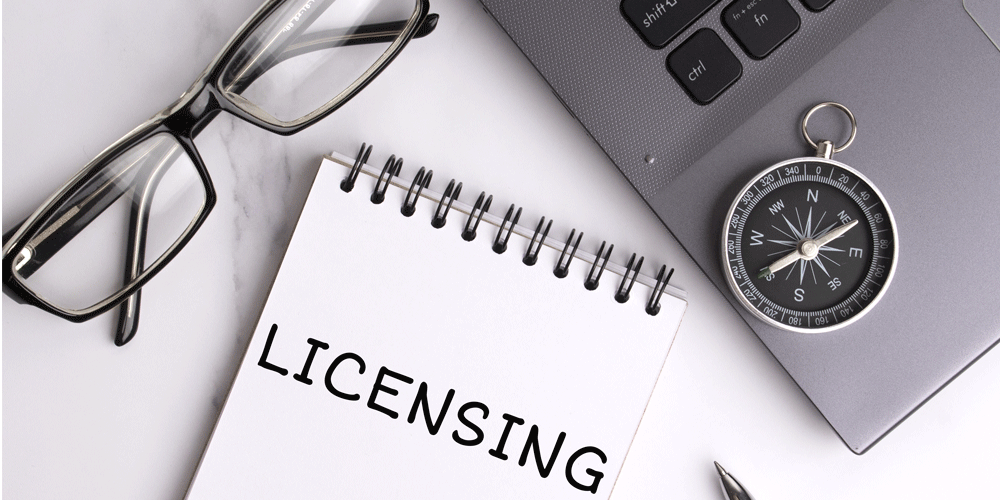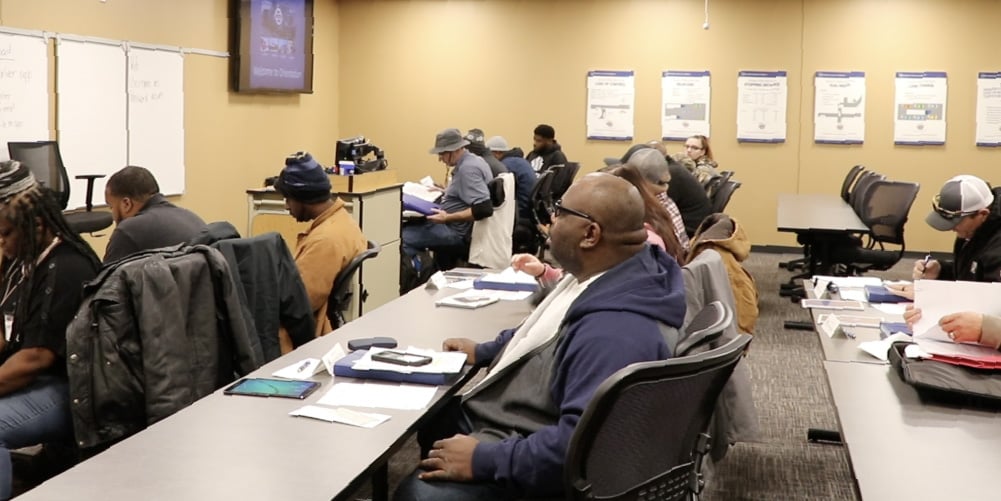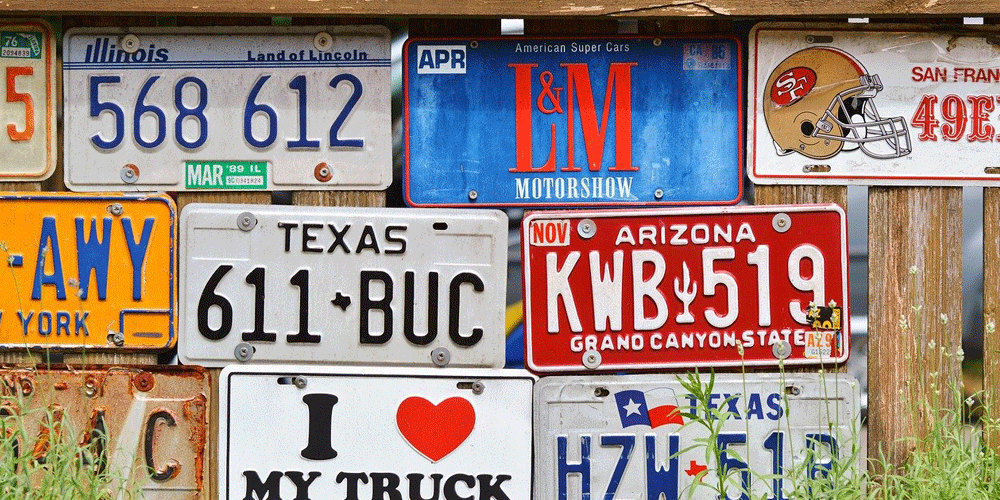Contracting With Carriers as an Owner-Operator [7 Questions]
Samantha joined the Anderson Trucking Family in November of 2012 as a specialized driver manager and managed a fleet of mixed company and contractor drivers. In the spring of 2014, she transitioned to the driver administration department and began working in contractor services. While in contractor services, Samantha familiarized herself with all processes, procedures and information in regards to driver contracts, pay and settlements. She is currently the operations support manager and oversees both the contractor services department as well as the driver settlement department and leads both of her teams to ensure our drivers receive the highest level of service required to help navigate their accounts and settlements on a daily basis.
There are two kinds of owner-operators:
- Owner-operators who sign on with a carrier (or lease onto a carrier) and receive access to their freight.
- True owner-operators who search the open market for loads and schedule their own freight.
In this article, we’ll be talking about the former, but it’s helpful to know the difference between the two.
When you lease onto a carrier, you’ll receive the support and backing of that carrier. They may cover some of your expenses and you might get access to their maintenance and fuel discounts in addition to their freight opportunities.
When you decide to be a true owner-operator, you don’t receive that same support. You’ll be responsible for all business costs.
To receive the full support that you require to succeed as an owner-operator, you need to choose the right carrier to sign on with. Failing to do so can have a major impact on your job satisfaction and subsequently, your income.
There’s a lot to consider. And if you haven’t been through this process before (most likely you haven’t), then it can be overwhelming and you might not know how to proceed. What kind of permits do you need? What truck specifications does the company require?
Before you contract with a carrier as an owner-operator, there are important questions you must ask the company — including what qualifications you and your truck must meet before you can sign a contract.
As the operations support manager at Anderson Trucking Service, I help drivers like you navigate this process every day. I’m going to tell you everything you need to know about signing your truck on with a carrier.
When you finish reading, you’ll not only know what questions to ask, but you’ll understand how to find a carrier who meets your needs.

Question 1: What Paperwork Do I Need as an Owner-Operator?
You’ll need specific paperwork at the ready when you lease your truck onto a carrier as an owner-operator. This includes:
- The vehicle’s title
- The value of the vehicle
- Cab card
- Schedule 1 2290 Form
Owner-operators are federally required to have this paperwork, so whether or not you sign on with a carrier, you should have this paperwork.
The Vehicle’s Title
When you purchase your truck, you should keep copies of all the paperwork you receive. That includes a copy of the front and back of the title. Even before you have the title transferred to you, you should get a copy of the front and back of the title.
Value of the Vehicle
You’ll need to know the value of your truck for insurance purposes. This is so you insure the truck for its full value. You’ll receive this paperwork when you purchase the truck, but you should have your truck regularly revalued.
Cab Card
A cab card is the registration for your truck. Similar to the tabs placed on a passenger vehicle, a driver needs to keep their cab card in their truck. The cab card includes information about the year the truck was registered, its weight and a list of the states it’s registered in.
Schedule 1 Form 2290
This form is also referred to as 2290 or a paid Schedule 1. This form is proof of payment for the federal highway use tax. At the time of this writing, this is a $550 annual fee that must be paid on every truck that has a DOT number on it.
Question 2: Do I Need to Plate My Truck?
You may or may not need to plate your truck. Ask the carrier. For instance, if you already have Mississippi plates, find out if you need to surrender your plates and put plates on from a new state. If the company is located in Texas, you’d need to get Texas plates put on your truck.
Some companies require new plates; some don’t. If you don’t want to surrender your plates, make sure you don’t sign on with a company that requires you to plate your truck.
Question 3: What Should My Truck Specifications Be?
When you sign your truck on with a company, you need to ensure your tractor is compatible with the company’s trailers to ensure every load can be safely hauled. That means your fifth wheel needs to be a certain height to haul dry vans and different types of flatbed trailers.
Truck specifications will depend on what types of trailers you’ll be hauling and the types of trailers the company has. You also need to ask if you’ll need any other tools to haul the trailers. For instance, at ATS we haul a lot of specialized freight on different types of trailers, including removable gooseneck trailers (RGN). You need ramps to hook up this type of trailer.
Be sure you ask about truck specifications upfront. That way, you’ll understand what costs will be associated with signing on with that carrier. You will need to provide your truck specifications to your carrier. Some carriers will also double-check this by measuring themselves.
Question 4: Do I Need a New DOT Inspection?
When you lease your truck out to a carrier, you’ll either need to show your current DOT inspection or you’ll need to get a new one. Carriers go both ways. Some carriers don’t care if you had a DOT inspection yesterday; you’ll need to have a whole new DOT inspection performed.
Make sure you know which one your carrier requires. If you need to have a new inspection done, clarify who will be responsible for the expense. Do you need to pay for it or will the carrier pay for it? For instance, you’ll need to have a new DOT inspection completed during orientation when you sign your truck on with ATS, but we will foot the bill.
One of the reasons carriers require a new DOT inspection is to ensure your truck specifications meet their requirements. After checking off everything on the federally-regulated list — including every detail from a crack in the windshield to air leaks or corrosion on the engine — they’ll make sure your fifth wheel is the proper height and you have the correct axle spacing.
Carriers want to make sure you’re ready to safely haul their freight, which is why this inspection is so important when you sign on your truck as an owner-operator.
Question 5: Do I Need to Attend Truck Driver Orientation?
Find out if you’ll need to attend orientation as an owner-operator. Some companies will have you attend an in-person orientation. Other companies will only make you go to the company headquarters to sign paperwork.
If you have a preference one way or the other, make sure this is something you ask when you’re talking to recruiters. Attending a week-long orientation will keep you off the road for a week. If they aren’t paying you for your attendance, that could be a week of money you can’t afford to lose. In that case, find a company that has either a short orientation or only makes you go to headquarters to sign paperwork.

Question 6: How Much Support Will I Receive as an Owner-Operator?
Because you’ve decided to sign your truck on with a carrier, as opposed to running on your own and utilizing the open market, you probably desire some support from a company. Find out just how much support you can expect from the company before you sign with them.
Ask these questions:
- Will they foot the bill for anything, like permits?
- Will you receive any perks for fueling up at certain stations?
- Will you get a maintenance discount if you have your maintenance performed at their shops?
Know your costs upfront. This will help to ensure your success.
Question 7: How Often Can I Go Home?
Owner-operators are all at different places in their lives and businesses. They might want to run for two weeks out of the month or be very choosy with their loads and take their time with deliveries. They might want to run as much as possible.
Whichever side of the spectrum you're on, make sure you sign on with a carrier that accommodates this. Ask the carrier what their performance expectations are for you and how often they expect you to run.
Find a carrier with dispatchers who align with your expectations and goals.
Contracting With a Trusted Carrier
Now that you know what’s to be expected of you when you lease your truck to a carrier, you should be a lot less confused. You know exactly what your next step is, what you need to bring with you when you sign your truck on and what questions you need to ask recruiters.
So what are you waiting for? It’s time to take the next step.
ATS has been around since 1955 and has great freight options. If you’re looking for a supportive company and the chance to make a lot of money, ATS might be perfect for you.
When you contract with ATS as an owner-operator, you’ll not only have access to our freight, but we’ll cover your permits and DOT inspection, and you’ll receive our maintenance and fuel discounts.
If this aligns with your goals and you’d like to ask a recruiter some questions, fill out our contact form or application.
![Contracting With Carriers as an Owner-Operator [7 Questions]](https://blog.drive4ats.com/hubfs/Images/Blog/Signing%20on%20as%20an%20Owner%20Op/FBwithCraneFeatured.png)


